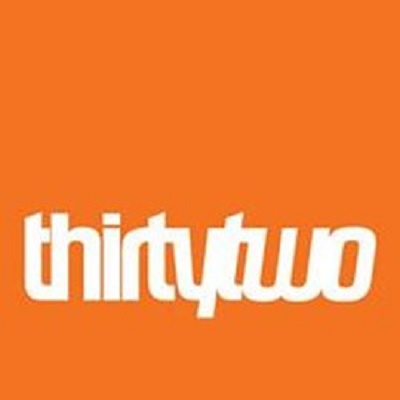Tyrolean Tourism Reports Stable Winter Season Despite Challenges

The current winter season is bringing a rollercoaster of emotions to Tyrolean tourism. After a very positive development in the first half, the industry's interim results as of the end of March are slightly down compared to the previous year, with -0.8 percent in arrivals and -1.3 percent in overnight stays. The Easter date in April ultimately suggests a balanced result. Confidence prevails for the coming summer. Given the stable development, industry representatives emphasize the importance of tourism as an economic driver for the region.
The current winter season runs until April 30. While the first half of the season—from November to January—was very positive, the second half is proving challenging: Little natural snow, a lack of winter spirit in the markets, and the lack of a leap day have caused demand to decline slightly compared to the previous year, despite good piste conditions.
After five of six months of the current winter season, Tyrol's tourism statistics show 24.1 million overnight stays. This represents a slight decrease of 1.3 percent compared to the previous year. 5.5 million arrivals represent a small decrease of 0.8 percent. The average length of stay remained unchanged at 4.4 days. However, this preliminary figure takes into account the postponement of Easter, which fell to April this year after being in March last year and is not yet included in the current interim figures. Therefore, a balanced result is expected at the end of the winter season.
Great commitment from the industry
"The fundamentally stable development of Tyrolean tourism is no easy feat, especially given the diverse challenges," emphasizes Tyrolean Tourism Minister Mario Gerber. "The industry is making a significant commitment to this. This ranges from adapting to climate change to a series of events to revitalize the off-season and, in particular, maintain high demand toward Easter." Tourism is thus consolidating its role as a key driver of the domestic economy and prosperity in the region, and remains the only alternative, especially in the valleys.
The industry's stable development is also demonstrated by an initial calculation of value added by MCI Tourism. This figure for the 2024/25 winter season is EUR 3.6 billion, only slightly below the previous year's figure of -0.3 percent when adjusted for inflation.
The Seasonal Tourism Barometer, a representative survey of Tyrol's accommodation providers, underscores this result: 60 percent of the surveyed businesses are satisfied with the economic results of the 2024/25 winter season. Nearly 30 percent are very satisfied, and only about ten percent are dissatisfied.
Different developments in key source markets
The current interim results for the most important source markets paint a mixed picture. A decline in overnight stays by German guests of -4.7 percent to 12.0 million is offset by increases from the Netherlands to 3.8 million overnight stays (+4.2%) and Austria to 1.6 million (+2.2%).
The development in accommodation also presents itself differently: Commercial holiday apartments are currently experiencing growth (+4.8%), while the hotel industry is experiencing declines: four- and five-star hotels -0.9 percent, three-star hotels -3.7 percent and two- and one-star establishments -1.5 percent.
For Karin Seiler, Managing Director of Tirol Werbung, the ability of Tyrolean winter tourism to adapt is crucial to the industry's resilience. "Skiing will remain the core product of Tyrolean winter tourism for the foreseeable future. At the same time, due to changing needs and conditions, the offering can no longer be limited to just on-piste sports," says Seiler. "With the so-called 'Skiing Plus,' a diverse range of activities, from winter hiking to wellness and culinary delights, has been shaping the range of activities available alongside the slopes for years."
From a business perspective, the winter season that is coming to an end has not been easy, summarizes Alois Rainer, chairman of the Tourism and Leisure Industry division of the Tyrol Chamber of Commerce. Especially for lower-lying regions, it is not possible to take advantage of the late Easter holidays. "We knew that this year's season would not be easy given the current holiday situation, so the result is no surprise," says Rainer. Guests' willingness to spend has also declined somewhat in light of economic crises and other factors. "Therefore, it is not always possible for businesses to pass on the significantly increased costs." According to the Tourism Barometer, around 40 percent say they have been able to pass on the increased costs to guests so far. 30 percent have been able to pass on some of the expenses, while another 30 percent have not been able to do so. "The fact that our industry is so successful despite these diverse challenges once again demonstrates the commitment and dedication of the businesses to quality."
This commitment is also reflected in a recent analysis by Tirol Werbung, which used artificial intelligence to analyze more than 420,000 guest reviews on online platforms. 84 percent of these were positive, two percent neutral, and 14 percent negative.
Confident look towards summer
Tourism professionals are looking forward to the coming summer with confidence. Around three-quarters of Tyrolean accommodation providers are currently satisfied or very satisfied with the booking situation for the summer season, which begins on May 1st. The situation is best in Germany, the most important source market: 92 percent of respondents report bookings that are as good or even better than last year. This positive outlook is also underpinned by the price and booking monitoring of the Tyrol Tourist Board. Accordingly, demand for this summer is at the same level as last year.
There is also optimism regarding economic development: Around half of the accommodation providers expect to be able to maintain their previous year's results. 28 percent expect to close the 2025 summer season with an increase in revenue, while only 13 percent anticipate a decline in revenue. The confident financial assessment of the upcoming summer season is also reflected in the Price and Booking Monitor. The price forecast for summer 2025 shows higher values in all categories considered compared to the previous year.














